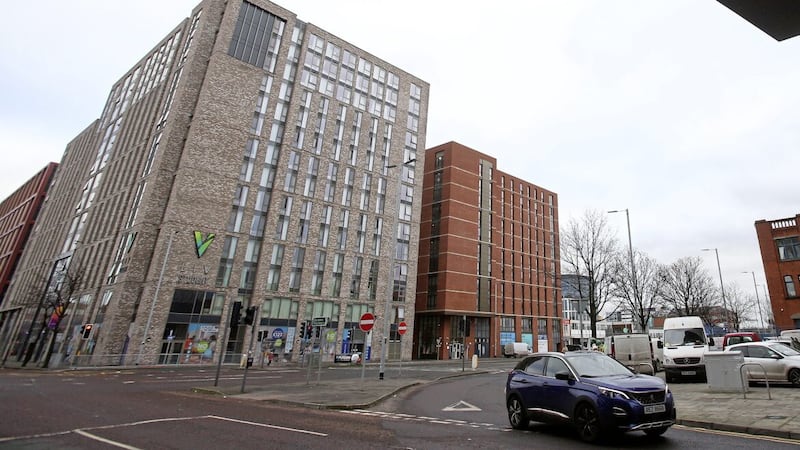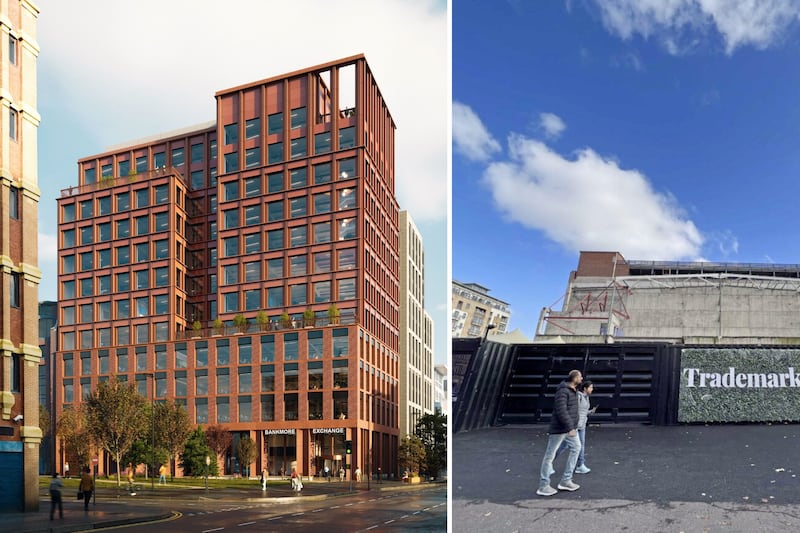MORE than £4m a year in revenue for cash-strapped public services is being lost because of Stormont's failure to plug a "loophole" in rates rules for student accommodation.
The Department of Finance planned to scrap rates exemption for private and university-run halls of residence in 2018. However, the stop-start nature of the power-sharing institutions, coupled with the impact of the pandemic, means the proposal never came before the assembly.
Meanwhile, there's been rapid expansion in privately-run, purpose-built student accommodation in Belfast, providing lucrative returns for investors. However, in common with traditional university-owned halls of residence in the city, none of the facilities pays rates.
Based on their net annual value (NAV), the annual rates bill for some the larger facilities, housing up to 750 students, would be in the region of a quarter-of-a-million pounds.
This week Belfast City Council, which is understood to foot the £100,000 bill for bin collection at privately-owned student accommodation, is expected to approve an 8 per cent increase in the district rate. Secretary of State Chris Heaton-Harris has previously warned that he may increase the regional rate, leaving households and businesses bracing themselves for what are likely to be record hikes.
SDLP councillor Carl Whyte said Belfast City Council and the Department of Finance needed to "work with the utmost urgency to close this loophole ".
He said that in the midst of a cost of living crisis a "single person living in a one-bedroom flat pays more rates than companies making millions of pounds".
"Belfast City Council’s proposed 8 per cent rates increase means families, elderly people and those living alone could pay even higher rates during the worst cost-of-living crisis in living memory," he said.
"Yet the estimated rates shortfall because of the exemption of rate paying for purpose-built student accommodation is roughly £4m per year – that £4m could be used to reduce the proposed 8 per cent rates hike but instead is sitting in the bank accounts of multi-million-pound businesses and organisations."
The Department of Finance said the proposal to end full rates exemption for "university managed halls of residence" was included in its 2016 Rates Rethink review.
"The Rates Rethink proposal was to remove the halls of residence exemption from April 2018 to ensure consistent treatment across the student housing sector," a statement said.
"However, with the collapse of the executive in 2017, the Covid pandemic requiring other rating policies to be prioritised in 2020 and 2021, and the absence of a functioning assembly since March 2022, it has not been possible to take this further forward.”
Belfast City Council said: “The council is aware of this exemption and has highlighted this on previous occasions to the Department of Finance as part of its responses to rates consultations."
In regards to speculation that the council provided bin collection for rates exempt student accommodation, it said its waste collection budget was "not defined by accommodation type".







